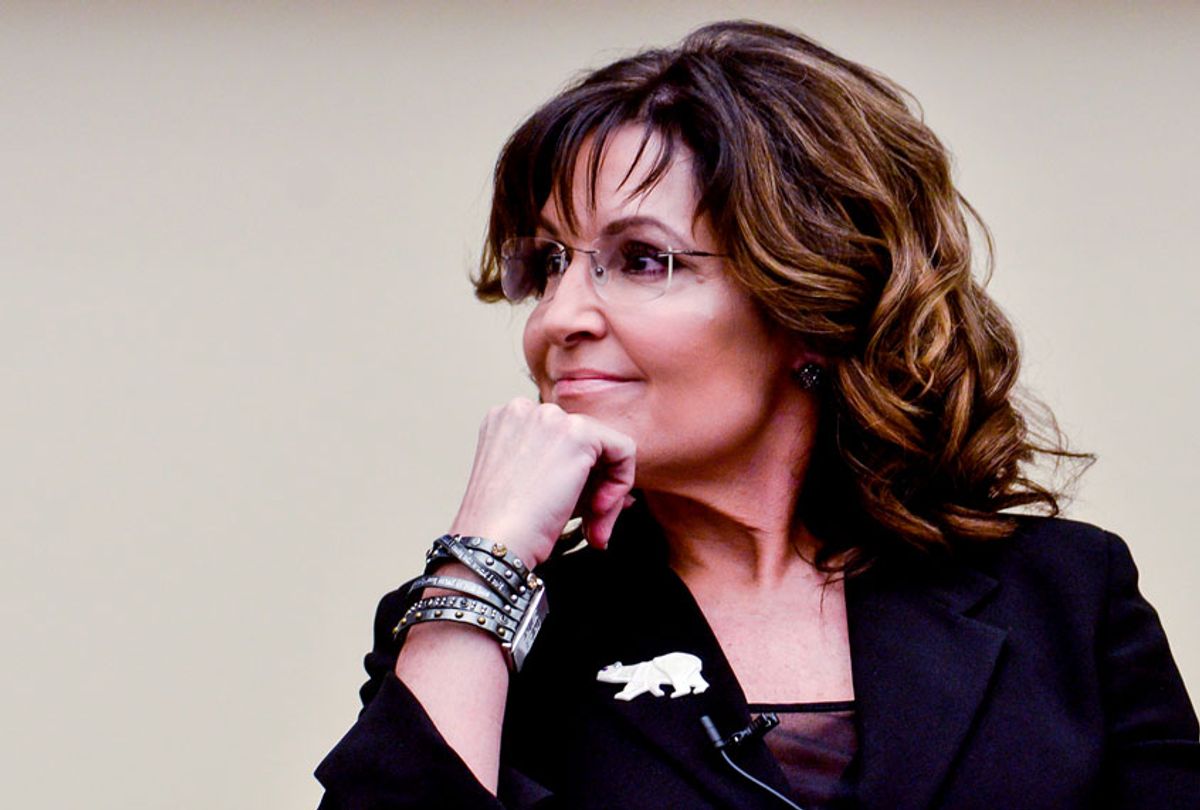During the George W. Bush and Barack Obama years, many Republicans steered clear of far-right conspiracy theorist Alex Jones and Infowars. Even Bill O'Reilly, then a Fox News host, was overtly contemptuous of Jones. But during Donald Trump's presidency, Infowars was granted White House press credentials; the Trump White House treated Infowars much more respectfully than it treated CNN or the New York Times. Conspiracy theorists, once shunned by Republicans, became much more accepted in the GOP — and some Republican members of Congress, including Rep. Marjorie Taylor Greene and Rep. Lauren Boebert, have promoted QAnon conspiracy theories.
According to analysis and research reported in the Washington Post, conspiracy theories and misinformation haven't become less common among Republicans in the post-Trump era. Instead, the problem has become even worse.
In an article published on August 29, researchers Maggie Macdonald and Megan A. Brown explain, "Over the last several years, there's been a considerable increase in media coverage about misinformation and conspiracy theories in politics. Former President Donald Trump falsely claimed the 2020 election was stolen, and his January 6 'Stop the Steal' rally led some supporters to attack the U.S. Capitol. Members of Congress, including Rep. Marjorie Taylor Greene (R-Ga.) and Rep. Lauren Boebert (R-Colo.), have repeatedly shared COVID-19 misinformation and embraced QAnon conspiracy theories. And more than 100 Republican candidates in the 2022 midterms continue to promote Trump's election fraud claims."
Macdonald and Brown, both of whom are researchers for New York University's Center for Social Media and Politics, pose the question, "Are candidates for Congress actually sharing more misinformation in 2022 than 2020?" And they answer their own question with a "yes," citing "analysis of congressional candidates' Facebook posts."
"We found that politicians in the 2022 election are sharing more links to unreliable news sources than they did in 2020, and the increase appears to be driven by nonincumbent Republican candidates," Macdonald and Brown report. "Measuring misinformation on social media is complicated. With billions of posts per day on platforms like Facebook and Twitter, it would be impossible to examine each one for misinformation. Instead, to approximate the level of misinformation shared by political candidates, we relied on NewsGuard, a nonpartisan organization that provides trust ratings for news sources online."
The researchers continue, "NewsGuard uses several point-based criteria to assess a site's credibility and transparency, giving each site a score from 0 to 100 based on how well it adheres to those standards. NewsGuard considers those rated at 60 and above, which include such sources as The Washington Post, New York Times and CNN, to be reliable news sites. It considers those rated under 60, which include Breitbart and Daily Kos, to be unreliable. We then examined the NewsGuard scores for news sources shared by Democratic and Republican primary and general election candidates for Congress in 2020 and 2022."
Macdonald and Brown report that from January-July 2020, 8 percent of the links shared by "Republican congressional candidates" came from "sites rated as unreliable, on average each day."
"Two years later, Republican candidates were leaning much more on unreliable news sources," according to Macdonald and Brown. "From January to July 2022, on average each day, 36 percent of news that Republican candidates shared came from unreliable sites, while that was true for only 2 percent of news shared by Democratic candidates each day."
One of the worst offenders when it comes to sharing misinformation, according to the researchers, is former Alaska Gov. Sarah Palin, who is running for a seat in the U.S. House of Representatives.
"As of July 12, 2022, (Palin) has shared 849 links to unreliable sources, out of 853 total, for more than 99 percent of her shared sources this year," Macdonald and Brown note. "Palin mostly shares blog posts from her own website, which NewsGuard rates as unreliable. The next closest is Rob Cornicelli, a Republican running in New York, who has shared 88 links to unreliable sources, or 65 percent of his total."




Shares